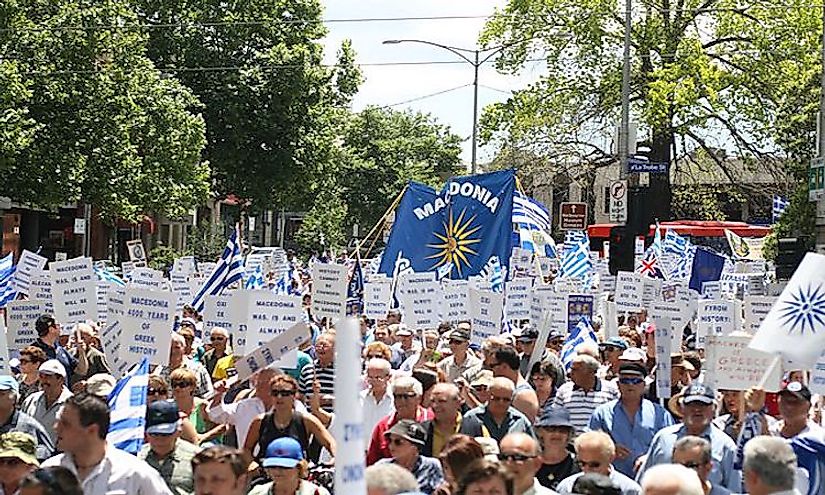Macedonia Versus FYROM - A Historical Name Dispute

Historical Context
In 1991, after the dissolution of the Socialist Federal Republic of Yugoslavia, it splintered into several republics gaining independence one after the other, one of them is Macedonia, now known as Former Yugoslav Republic of Macedonia. That new name was adopted by the newly independent Macedonia (from the breakup of Yugoslavia) after Greece opposed its entry into the EU and NATO using the name of Republic of Macedonia. Although the name dispute goes way back to World War II when, Macedonia was still a unit of Yugoslavia. Greece contends that FYR Macedonia has no right to that name because the Macedonia name originated inside Greece.
Geopolitical Context
In 1995, Greece and FYR Macedonia established diplomatic relations to resolve the naming issue. The case of the latter country was made worse when it erected statues of Alexander the Great and Philip II of ancient Greek Macedonia in their home country in the former Yugoslavia. Greece also opposed the use of the Vergina Sun symbol, related to Philip II of ancient Greek Macedonia. FYR Macedonia also adopted some aspects of ancient Greek history as their own. The long -term effect that the Greek government fears is a continuation of the claim of late President Tito of Yugoslavia about the territorial claims of “Great Macedonia.”
Socioeconomic Contexts
Northern Macedonia is part of present Greece which is approximate to ancient Macedonia territory which FYR Macedonia has been hinting as a possible inclusion to a “Greater Macedonia” ambition. As a result of these developments in the early 1990s, Greece declared a trade embargo on FYR Macedonia to 1995. But an Interim Accord between the two countries resolved the issue of the embargo, allowing FYR Macedonia access to Greek ports. This developed into an economic relationship that made Greece its biggest investor and closest trade partner. FYR Macedonians migrated to Greece and vice-versa allowing for mutual economic gains. Despite these close ties, the naming issue remains unresolved. It has been a hindrance in FYR Macedonia’s ambition to the EU and NATO membership status. The Greek government seems to have given more in terms of allowances such as the waiving of visa requirements for FYR Macedonian citizens.
International Organizations Accessions
The 1995 Interim Accord signed between the two countries specifically states that Greece must not oppose or block FYR Macedonia in any of its moves to join the NATO and EU. However, Greece has made it clear that unless the naming dispute is resolved, it would continuously veto such aspirations. Any acceptable name change would have to be erga omnes, for everyone worldwide and not just for Greece. Although some see Greece as obstinate in its opposition, it has continuously provided economic stability to its neighbor with infrastructure construction and job creation. However, the dispute may only be worsened in the long term by the FYR Macedonian government’s provocative reactions and position to every support that Greece applies. In the past, this has included the circulation of a new border map of the ambition of a greater Macedonia.











